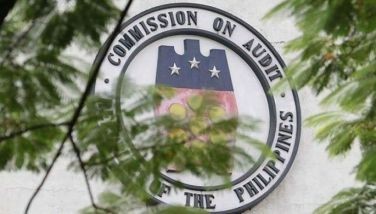CalPERS retains RP in investments portfolio
February 3, 2006 | 12:00am
The Philippines will stay firmly in the investment portfolio of the California Public Employees Retirement System (CalPERS), as Wilshire Associates upgraded the country’s rating this year following the reduction of the government’s budget deficit.
With over $194 billion in its investment portfolio, CalPERS is the biggest pension fund in the US, wielding significant influence even in corporate regulation and policy-making.
CalPERS’ list of "permissible investment destination" is based on the annual review and recommendation made and compiled by its consulting firm, Wilshire Associates.
In its latest ratings report, the Philippines was given a total score of 2.13 points, up from two points in 2005. This score increased the country’s ranking among 26 other emerging markets and moved it from the 18th position in 2005 to 14th in 2006.
Based on the Wilshire report, the Philippines surpassed its peers, Malaysia, China, Russia and India.
Officials said Wilshire’s rating was based on improvements in the country’s fiscal deficit as well as the passage of the expanded value-added tax (EVAT) law which was considered a major step in increasing the government’s revenue base.
The increase in the VAT rate from 10 percent to 12 percent also assured the Arroyo administration that it would have some headroom in its fiscal balance this year when the deficit is expected to drop to P125 billion.
After the controversy over its removal from the list of "permissive emerging equity markets" in 2003, the Philippines was reinstated in 2004 and placed on a one-year cure period before finally being fully reinstated in 2005.
According to the Investor Relations Office of the Bangko Sentral ng Pilipinas (BSP), the period of political upheaval in July last year created tension among the country’s investors and creditors but this has largely dissipated since then.
Despite the optimism over the increase in taxation, however, analysts have been pointing out that the other end of the government’s revenue reform agenda has so far been neglected, specifically the crackdown on prominent tax evaders.
The finance department has been adamant about making an example of prominent personalities found evading their tax payments but since the resignation of former secretary Cesar Purisima, the program has taken the back seat.
Late last year, finance undersecretary Noel Bonoan finally resigned from the department, leaving behind the Run After Tax Evaders (RATE) program and the Revenue Integrity Protection Service (RIPS) which has been repeatedly praised by investors and creditors alike.
Wilshire’s rating report will be tabled for discussion by the CALpers board sometime in the next few weeks and the final list of permissible investment destinations will follow shortly thereafter.
CalPERS is known as an influential pension fund, compelling corporations and even sovereign republics to comply with international best practices in corporate governance, labor practices and even human rights.
With over $194 billion in its investment portfolio, CalPERS is the biggest pension fund in the US, wielding significant influence even in corporate regulation and policy-making.
CalPERS’ list of "permissible investment destination" is based on the annual review and recommendation made and compiled by its consulting firm, Wilshire Associates.
In its latest ratings report, the Philippines was given a total score of 2.13 points, up from two points in 2005. This score increased the country’s ranking among 26 other emerging markets and moved it from the 18th position in 2005 to 14th in 2006.
Based on the Wilshire report, the Philippines surpassed its peers, Malaysia, China, Russia and India.
Officials said Wilshire’s rating was based on improvements in the country’s fiscal deficit as well as the passage of the expanded value-added tax (EVAT) law which was considered a major step in increasing the government’s revenue base.
The increase in the VAT rate from 10 percent to 12 percent also assured the Arroyo administration that it would have some headroom in its fiscal balance this year when the deficit is expected to drop to P125 billion.
After the controversy over its removal from the list of "permissive emerging equity markets" in 2003, the Philippines was reinstated in 2004 and placed on a one-year cure period before finally being fully reinstated in 2005.
According to the Investor Relations Office of the Bangko Sentral ng Pilipinas (BSP), the period of political upheaval in July last year created tension among the country’s investors and creditors but this has largely dissipated since then.
Despite the optimism over the increase in taxation, however, analysts have been pointing out that the other end of the government’s revenue reform agenda has so far been neglected, specifically the crackdown on prominent tax evaders.
The finance department has been adamant about making an example of prominent personalities found evading their tax payments but since the resignation of former secretary Cesar Purisima, the program has taken the back seat.
Late last year, finance undersecretary Noel Bonoan finally resigned from the department, leaving behind the Run After Tax Evaders (RATE) program and the Revenue Integrity Protection Service (RIPS) which has been repeatedly praised by investors and creditors alike.
Wilshire’s rating report will be tabled for discussion by the CALpers board sometime in the next few weeks and the final list of permissible investment destinations will follow shortly thereafter.
CalPERS is known as an influential pension fund, compelling corporations and even sovereign republics to comply with international best practices in corporate governance, labor practices and even human rights.
BrandSpace Articles
<
>
- Latest
- Trending
Trending
Latest
Trending
Latest
Recommended






























